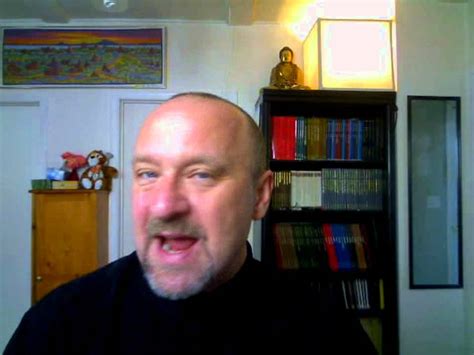A Quote by Thomas Aquinas
It is possible to demonstrate God's existence, although not a priori, yet a posteriori from some work of His more surely known to us.
Related Quotes
It is one of the great ironies of human history that some mortals with incorrect understanding of God and life's purposes sometimes scold God because of the abundance of human misery and suffering-which, indeed, lies all about us. Such individuals almost dare God to demonstrate His existence by straightening things out-and at once! But He is a much different kind of Father than that. Surely it is requisite to eternal life that we come to know God and Jesus Christ whom He has sent (see John 17:3).
How could it occur to anyone to demonstrate that God exists unless one has already allowed Himself to ignore Him? A king's existence is demonstrated by way of subjection and submissiveness. Do you want to try and demonstrate that the king exists? Will you do so by offering a string of proofs, a series of arguments? No. If you are serious, you will demonstrate the king's existence by your submission, by the way you live. And so it is with demonstrating God's existence. It is accomplished not by proofs but by worship. Any other way is but a thinker's pious bungling.
Sören Kierkegaard has another answer: human existence is possible as existence not in despair, as existence not in tragedy; it is possible as existence in faith... Faith is the belief that in God the impossible is possible, that in Him time and eternity are one, that both life and death are meaningful.
This leads us to note down in our psychological chart of the mass-man of today two fundamental traits: the free expansion of his vital desires, and, therefore, of his personality; and his radical ingratitude towards all that has made possible the ease of his existence. These traits together make up the well-known psychology of the spoilt child.
Time spent in prayer will yield more than that given to work. Prayer alone gives work its worth and its success. Prayer opens the way for God Himself to do His work in us and through us. Let our chief work as God's messengers be intercession; in it we secure the presence and power of God to go with us.
The goal of faithfulness is not that we will do work for God, but that He will be free to do His work through us. God calls us to His service and places tremendous responsibilitie s on us. He expects no complaining on our part and offers no explanation on His part. God wants to use us as He used His own Son.
Each one of us was harmed by being brought into existence. That harm is not negligible, because the quality of even the best lives is very bad—and considerably worse than most people recognize it to be. Although it is obviously too late to prevent our own existence, it is not too late to prevent the existence of future possible people.
Our work is not to save souls, but to disciple them. Salvation and sanctification are the work of God's sovereign grace, and our work as His disciples is to disciple others' lives until they are totally yielded to God. One life totally devoted to God is of more value to Him than one hundred lives which have been simply awakened by His Spirit. As workers for God, we must reproduce our own kind spiritually, and those lives will be God's testimony to us as His workers. God brings us up to a standard of life through His grace, and we are responsible for reproducing that same standard in others.
It is not unreasonable to assume that the works of God, their existence and preceding non-existence, are the result of His wisdom, but we are unable to understand many of the ways of His Wisdom in His works. On this principle the whole Law of Moses is based; it begins with this principle: "And God saw all that He had made, and behold, it was very good" (Gen. i. 31); and it ends with this principle: "The Rock, perfect is His work" (Deut. xxxii. 4). Note it.
It was while I was studying philosophy that I came to understand. . . that it is no sign of moral or spiritual strength to believe that for which one has no evidence, neither a priori evidence as in math, nor a posteriori evidence as in science. . . . It's a violation almost immoral in its transgressiveness to shirk the responsibilities of rationality.



































